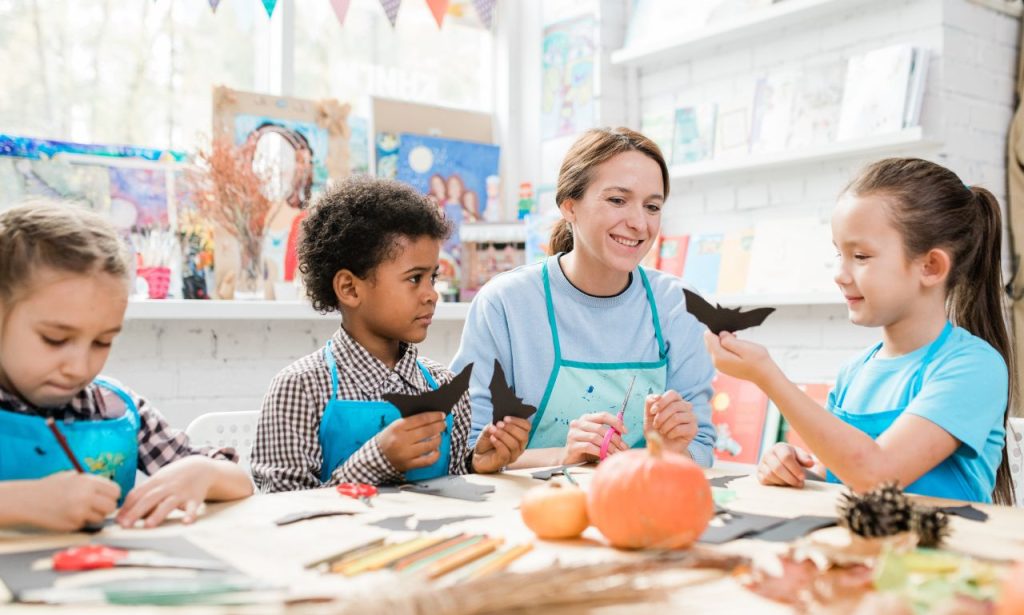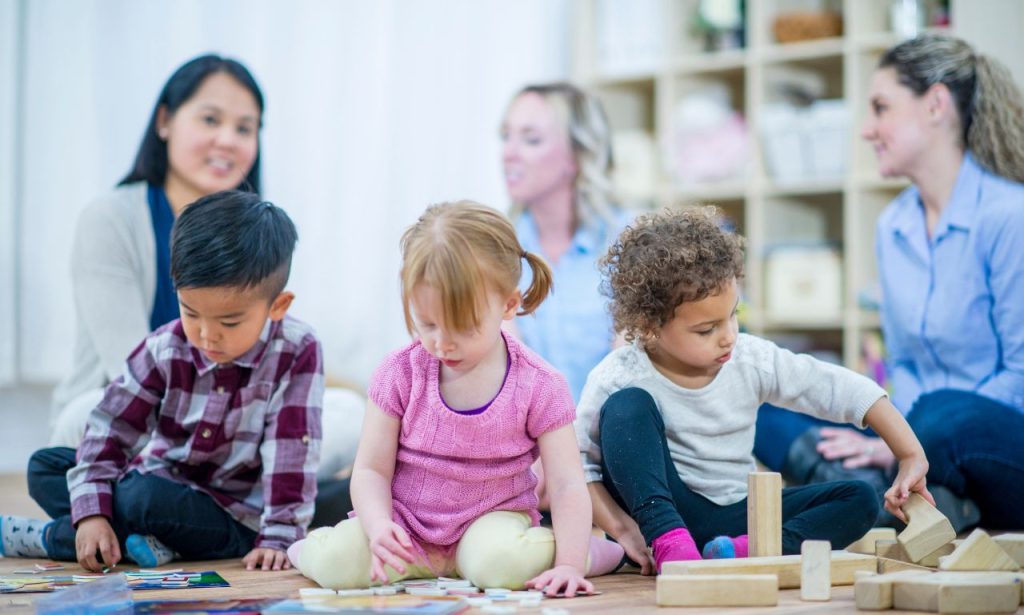As a parent or guardian, one of your key responsibilities is to support your child’s learning at home. This includes engaging them in homework activities for kindergarten. But what exactly should these activities entail, and how can you make them both effective and enjoyable? This guide aims to answer all your questions and provide you with innovative ideas and strategies to make homework a delightful experience for your kindergartener.
Should There Be Homework In Kindergarten?
The question of whether kindergarteners should have homework is a subject of much debate among educators and parents. Some argue that young children need more playtime, while others believe that homework helps establish a foundation for future academic success.
In the early years of education, the goal is to foster a love for learning rather than burden children with tasks. Therefore, homework for kindergarteners should be light, engaging, and designed to reinforce what they learn in school. It should focus on enhancing their cognitive, motor, and social skills without overwhelming them.
Benefits Of Homework In Kindergarten
Reinforcement of Learning
Homework serves as a valuable tool to reinforce what children learn in the classroom. By engaging in homework activities, kindergarteners can practice and internalize new concepts, which helps solidify their understanding and retention.
Development of Responsibility
Introducing homework at an early age helps children develop a sense of responsibility. They learn to manage time, follow instructions, and complete tasks independently, which are essential skills for their future academic and personal lives.
Parental Involvement

Homework provides an excellent opportunity for parents to become actively involved in their child’s education. It allows you to see what your child is learning and identify areas where they may need additional support.
Encouragement of a Routine
Establishing a homework routine helps children understand the importance of consistent study habits. It sets a precedent for future educational endeavors and instills discipline and structure in their daily lives.
Enhancement of Skills
Homework activities can enhance various skills, including fine motor skills, critical thinking, and problem-solving abilities. These activities can range from simple writing and drawing exercises to more complex tasks that challenge their cognitive abilities.
7 Fun Homework Ideas for Kindergarten
1. Storytime Adventures
Reading is a fundamental skill, and making it enjoyable is key. Create a cozy reading nook and select a variety of age-appropriate books. Encourage your child to pick a book and read together. After reading, ask them to draw their favorite scene or character from the story. This not only improves their comprehension but also sparks creativity.
2. Alphabet Scavenger Hunt
Turn learning the alphabet into an exciting game. Hide alphabet cards around the house and give your child clues to find them. Once they collect all the letters, help them arrange the alphabet in order. This activity combines physical movement with cognitive learning, making it a fun and effective way to reinforce letter recognition.
3. Counting with Everyday Objects
Use everyday objects like buttons, coins, or pasta to teach counting. Ask your child to count and sort these items into groups. You can also introduce basic addition and subtraction by adding or removing objects from the groups. This hands-on activity makes math tangible and engaging for young learners.
4. Nature Walk and Journal
Take a nature walk and encourage your child to observe their surroundings. Collect leaves, flowers, or rocks and discuss their characteristics. At home, create a nature journal where your child can draw what they found and write a few words about each item. This activity promotes observation skills and connects them with the environment.
5. DIY Craft Projects

Craft projects are a great way to develop fine motor skills and creativity. Provide materials like paper, glue, scissors, and markers, and let your child create their own artwork. You can also introduce specific themes, such as making a family tree or creating holiday decorations, to add a learning element to the activity.
6. Simple Science Experiments
Introduce basic scientific concepts through simple experiments. For example, you can create a volcano using baking soda and vinegar or explore the concept of buoyancy with a sink-or-float experiment. These activities are not only fun but also help children develop a curiosity for science and the world around them.
7. Interactive Learning Apps
Incorporate technology into learning by using interactive educational apps. There are numerous apps designed specifically for kindergarteners that make learning math, reading, and other subjects entertaining and engaging. Just ensure that screen time is balanced with other activities.
Top Tips To Make Homework Fun
1. Try Different Learning Apps
Introduce a variety of learning apps to make homework more interactive. Apps like ABCmouse and Khan Academy Kids offer engaging content tailored for kindergarteners. These apps use games, videos, and interactive exercises to teach fundamental skills in a fun and engaging way. Always monitor screen time to ensure it’s used effectively.
2. Use Rewards and Incentives
Incentives can motivate children to complete their homework. Create a reward system where your child earns stickers or points for completing tasks. Once they accumulate a certain number of points, they can exchange them for a small prize or an extra playtime session. This system encourages positive reinforcement and makes homework something to look forward to.
3. Work Together
Make homework a collaborative activity. Sit with your child and work on tasks together. Your involvement not only provides support but also shows that you value their education. Discuss the homework, offer guidance, and celebrate their achievements. This collaborative approach fosters a positive attitude towards learning.
4. Make Them a Snack
A healthy snack can boost your child’s energy and concentration. Prepare a nutritious snack before starting homework time. Foods like fruits, nuts, and yogurt provide essential nutrients that support brain function. A well-fed child is more likely to stay focused and engaged in their homework activities.
5. Go Outside
Take homework outside for a change of scenery. Fresh air and natural light can stimulate creativity and improve concentration. Whether it’s reading a book under a tree or doing a nature-themed activity, being outdoors can make homework time more enjoyable and refreshing.
6. Turn It Into a Game
Gamify homework to make it more exciting. Create educational games that incorporate homework tasks. For example, turn a spelling list into a word search puzzle or use flashcards for a memory match game. This approach makes learning feel like play, which can significantly increase your child’s enthusiasm and participation.
7. Set Up a Homework Play Date

Arrange a homework play date with a classmate. Working with a friend can make homework more enjoyable and less daunting. They can motivate each other, share ideas, and make the experience more social and interactive. Ensure the session stays focused on completing homework, with short breaks for play.
8. Make It Visual
Use visual aids to enhance learning. Create charts, diagrams, or drawings to explain concepts. Visual aids can help children understand and remember information better. For instance, use a colorful chart to teach numbers or a visual timeline to explain a sequence of events. Making homework visual can turn abstract ideas into tangible and understandable concepts.
Conclusion
Homework activities for kindergarten should be designed to nurture a love for learning, enhance skills, and involve parents in the educational process. By incorporating fun and engaging activities, you can make homework a positive and rewarding experience for your child. Remember, the goal is not just to complete tasks but to foster curiosity, creativity, and a lifelong love for learning.
ALSO READ: 9 Best Places To Go On Vacation With A 1 Year Old
FAQs
Good homework activities include reading together, interactive learning apps, simple science experiments, and creative crafts. These activities should be engaging, educational, and appropriate for your child’s developmental stage.
Kindergarteners should have minimal homework, typically around 10-15 minutes per day. The focus should be on reinforcing classroom learning and developing basic skills without overwhelming them.
Create a quiet and comfortable homework space, establish a routine, and provide short breaks. Using visual aids and making homework interactive can also help maintain your child’s focus and interest.
If your child struggles with homework, try breaking tasks into smaller, manageable parts. Offer guidance and support, and communicate with their teacher to understand any specific challenges they may be facing.
Incorporate games, rewards, and interactive activities into homework time. Use a variety of learning methods, such as visual aids, outdoor activities, and collaborative tasks, to keep your child engaged and motivated.





